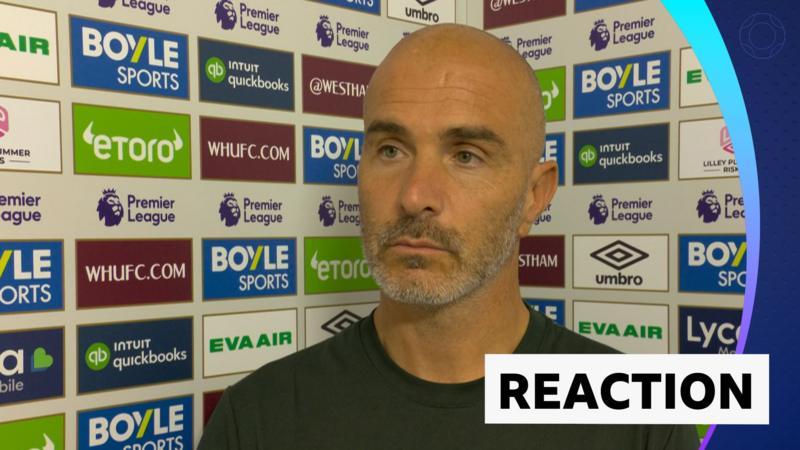Maresca Confirms: Benching Palmer Merely a Precautionary Move




In a twist that could've sent ripples through the fantasy football leagues and disappointed fans alike, Cole Palmer was notably absent from the starting lineup in Chelsea's recent thumping 5-1 victory over West Ham at London Stadium. The emerging England forward, known for his agility and sharp striking abilities, felt a niggle during the warm-up which raised immediate concerns from Chelsea’s managerial staff.
Chelsea's head coach, Enzo Maresca, playing it safe, decided against fielding Palmer just minutes before the game commenced. Maresca later elucidated his decision in the post-match conference, stating that he "didn’t want to take the risk" with Palmer’s fitness, given the congested fixture list and the significance of maintaining a healthy squad as the season progresses into its more challenging phases.
The absence of Palmer gave way to other players stepping up, showcasing the depth of talent Chelsea possesses in its ranks. Nonetheless, the decision highlighted a recurring issue in the world of competitive sports – the thin line between a player’s will to participate and the medical advisories that ultimately aim to safeguard their careers.
Cole Palmer, who has been hailed as one of the brightest prospects at Chelsea, has had a significant impact whenever featured. This season, fans have seen glimpses of what the young forward can offer. His sharp movements and goal-scoring instincts have already drawn comparisons with some of the greats who have adorned the blue jersey.
The incident at London Stadium throws light on the ever-present dilemma faced by football coaches: the balance between seizing a competitive edge in every game and the broader strategy of player management. In situations like these, the role of a club's medical team becomes crucial. The comprehensive assessments carried out in the lead-up to matches are more than just routine checks; they are a critical determinant in the tactical decisions made by the coaching staff.
Maresca’s cautious approach might have disappointed some, especially those eager to see Palmer continue his development on such a big stage, but it underscores a protective ethos that many in football are increasingly advocating. The Italian's managerial philosophy appears to be rooted in a pragmatic evaluation of long-term gains over immediate triumphs.
This decision did not dampen Chelsea's performance, though. Quite the contrary, it was a match that displayed Chelsea's ruthless efficiency and tactical sophistication. The emphatic 5-1 victory serves as a testament to the squad's depth and the tactical acumen of Maresca. Players who might usually have remained on the fringes, waiting for an opportunity, seized their moment brilliantly, contributing to a win that resonated well beyond the three points it added to the league standings.
As the Premier League season heats up, the health and readiness of players like Palmer could very well dictate the trajectory of Chelsea's campaign. Football, after all, is as much a game of managing resources as it is of executing strategies on the playing field. Maresca’s handling of Palmer’s situation is a reminder of the meticulous planning and cautious strategizing that go into every match.
Looking ahead, Chelsea fans will be hoping that the niggle is nothing serious and that Palmer will be back to dazzle on the pitch sooner rather than later. His development and fitness are not just crucial for Chelsea’s aspirations this season but also for the player’s hopes of cementing his place as a regular in the England national team in a busy sports calendar.
Given the high stakes and the relentless pace of the Premier League, Maresca’s protective stance might well be what keeps key players like Palmer in fighting shape, ready to contribute when it matters most. As the season unfolds, it will be interesting to see how this approach plays out, both for Palmer and for Chelsea.